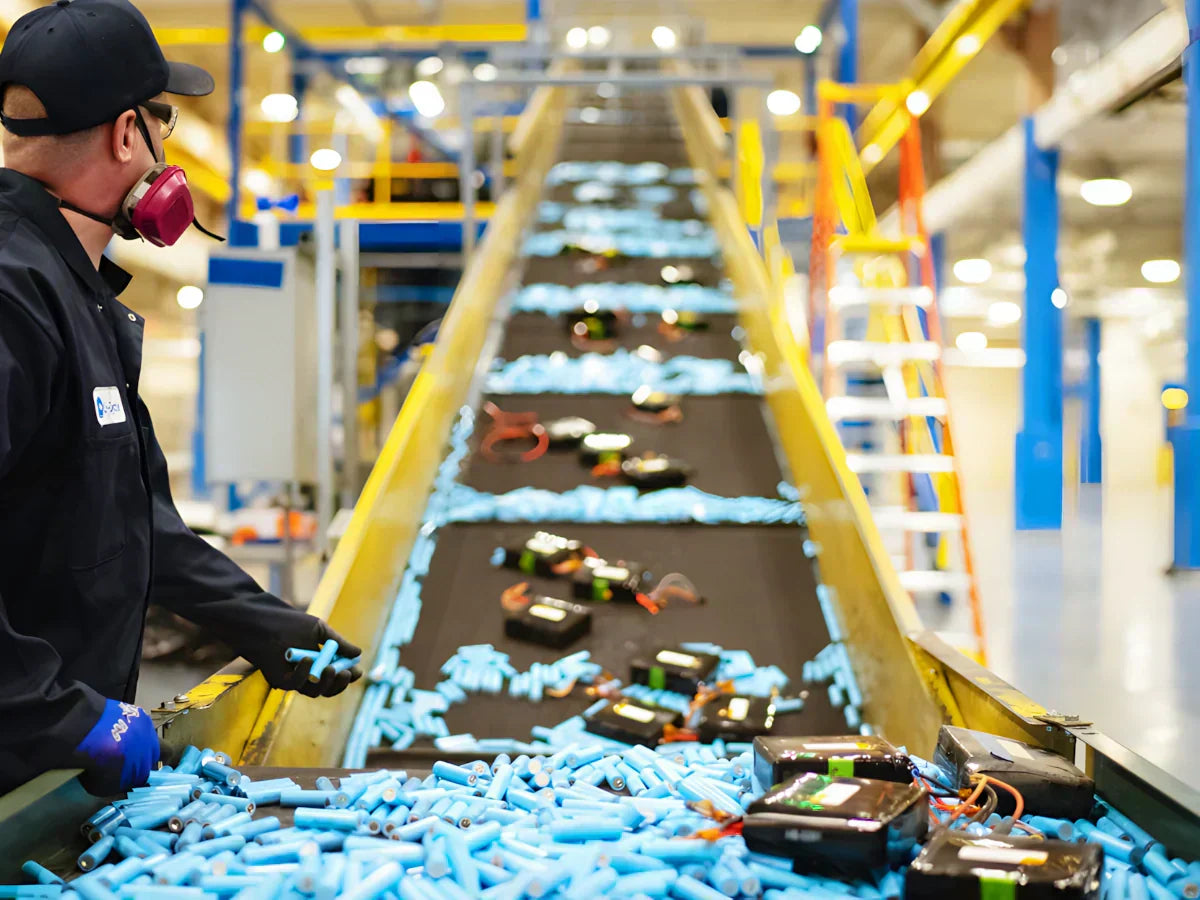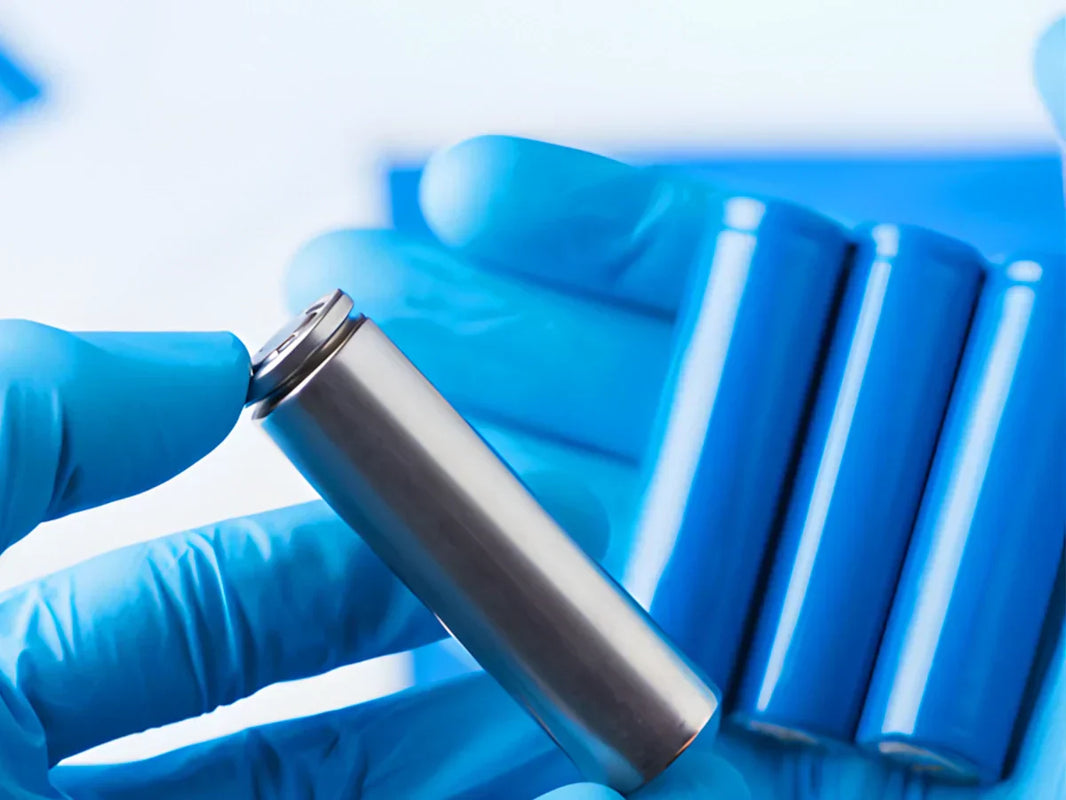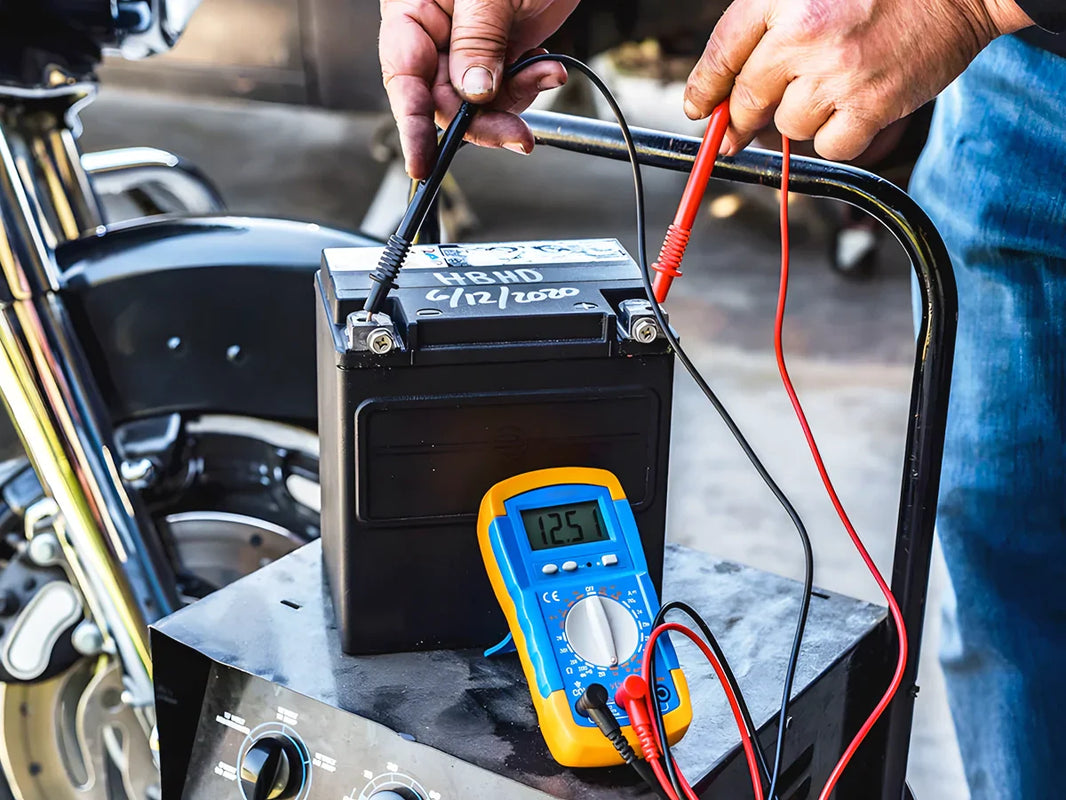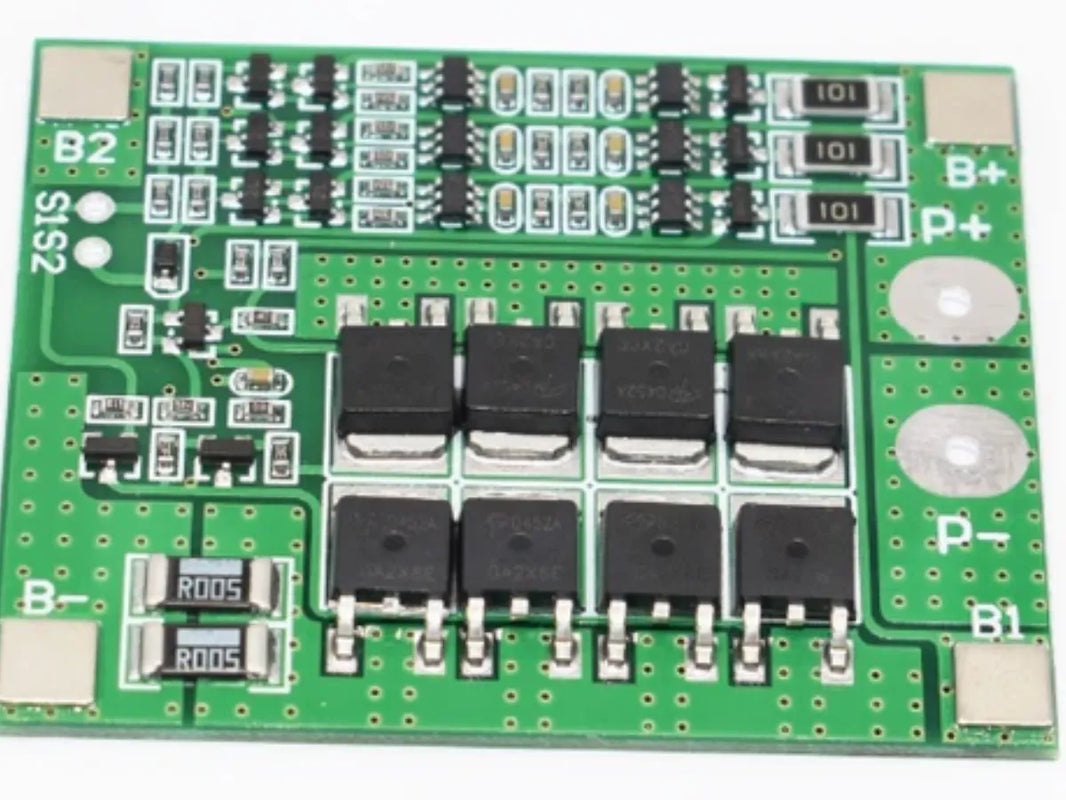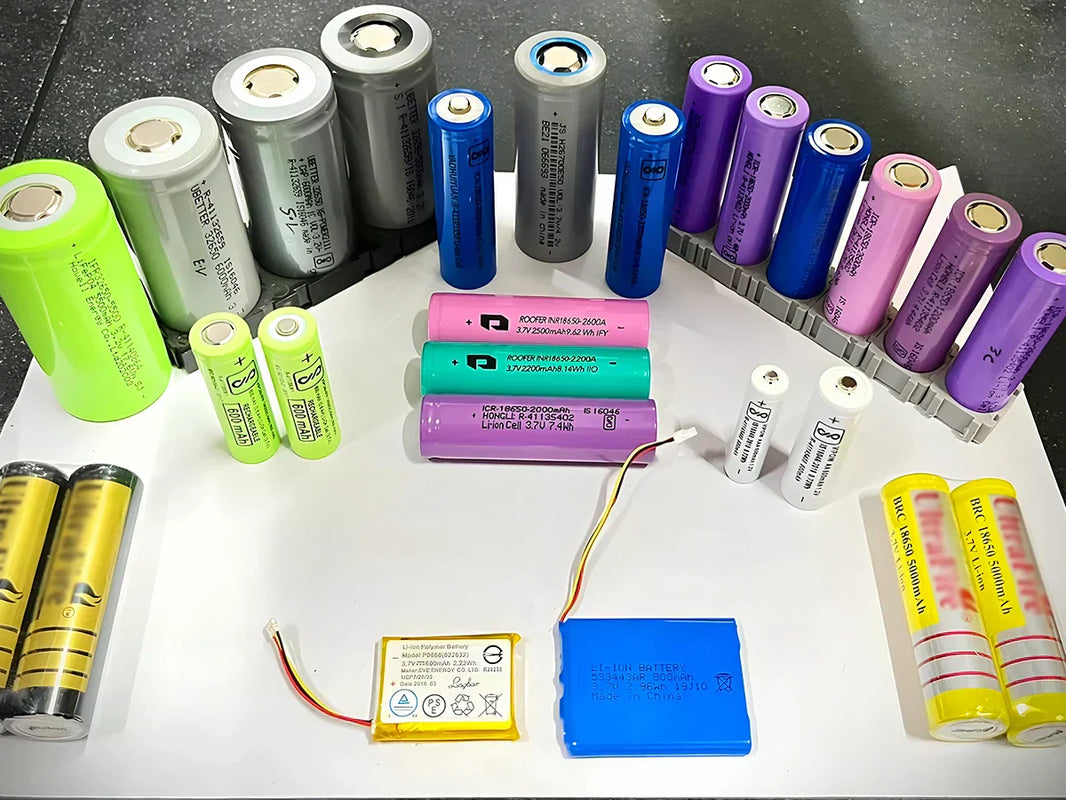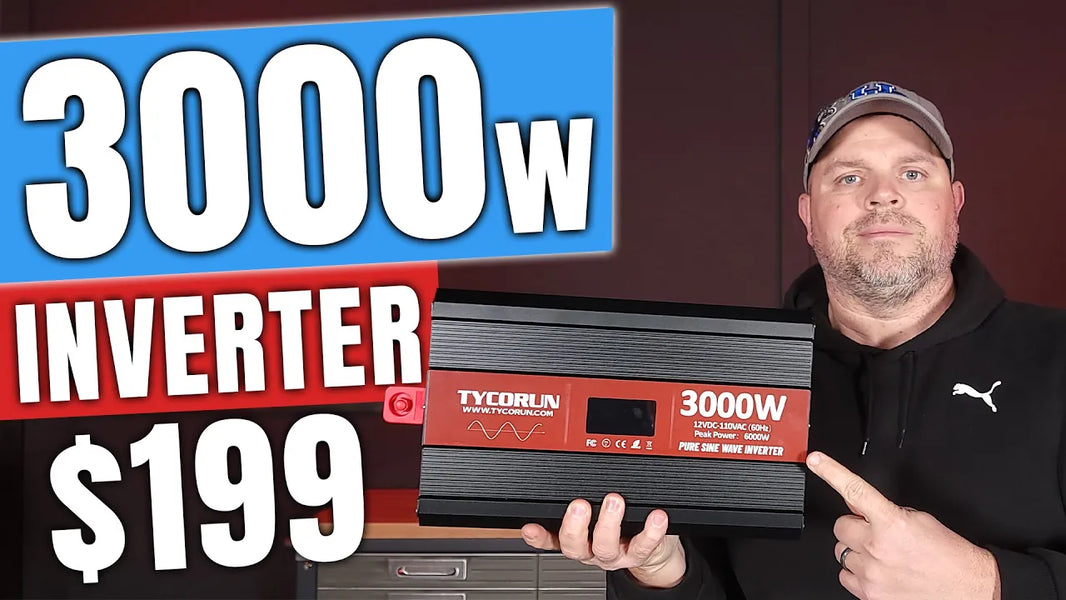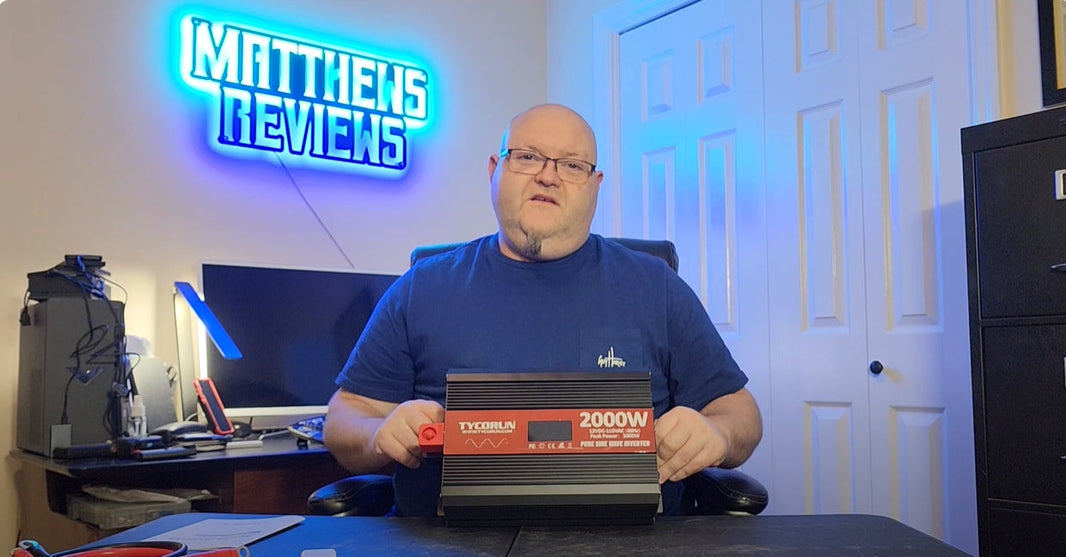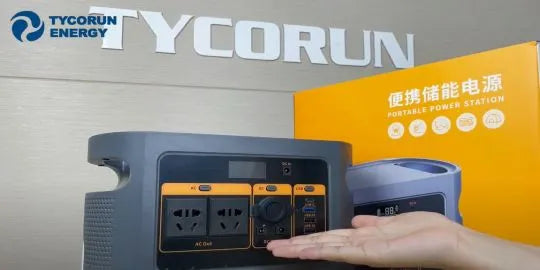
Main content:
There is a rising demand for electric and hybrid vehicles across all terrains and transportation modes - on the road, at sea, and in the air. The widespread use of lithium batteries is accelerating the growth of electric vehicles across different sectors. Electric cars (EV), marine vessels to airplanes and agricultural machinery, and lithium-based energy storage systems are critical for sustainable transportation.
While lithium delivers battery high energy density and efficiency, lithium batteries also require careful handling, especially at the end of their lithium-ion battery life. This article is a guide to explain how to dispose of lithium batteries safely and responsibly, with a focus on their use in vehicle applications.
Get to Know Lithium Batteries for Vehicles

Everybody knows that lithium batteries are used in vehicles with various types, each tailored for specific power and performance demands but they don’t know how to dispose of lithium batteries. So many lithium batteries are rechargeable and widely used in electric vehicles (EVs), plug-in hybrids, electric boats, agricultural tractors, and aircraft systems.
Lithium batteries have other variations, including Lithium iron Phosphate (LiFePO4) for marine and off road equipment due to stability and long cycle life. Another common type is lithium nickel manganese cobalt oxide (NMC), which is wiedely use in electric vehicles for its high energy density. Those two batteries differ in chemistry but they share a critical trait: they contain volatile materials that require regulated disposal methods. Understanding the type and use-case of each lithium battery is essential when determining the safest and most legal way how to safely dispose of lithium batteries.
Check NMC material for more details.
Lithium Batteries Need Special Disposal
Lithium batteries differ significantly from standard household batteries in both composition and risk profile. They contain flammable lithium-ion battery electrolytes and highly reactive lithium compounds, making them prone to thermal runaway - a chain reaction that can result in overheating, fire, or even explosion. Overcharging puncturing, or short circuiting the battery can trigger these dangerous reactions. This is not an exaggeration - these are proven risks, which is why proper and how to dispose of lithium batteries safely is critical.
Now many lithium-based batteries have hazardous metals such as cobalt, nickel, and lithium. Materials that pose environmental and health risks are leaked into soil or water supplies. That is why people to know how dispose lithium battery in regular household trash is prohibited in many regions. Improper disposal can lead to regulatory fines and environmental liabilities. But it will not happen if you go to specialized recycling centers or hazardous waste facilities to manage these batteries safely and in compliance with international and local regulations.
How to Dispose of Lithium Batteries (Step-by-Step)
The ultimate tutorial on how to dispose of lithium batteries depends on their size, type, and application. Whether it's a smartphone battery or a high-capacity pack from an electric tractor or marine vessel, it should be disposed of according to proper safety guidelines. Because how to dispose of lithium batteries is crucial.
A. Small Consumer Batteries (Phone, Cameras, Tools)

Lithium-ion batteries are commonly found in portable electronics. Although smaller in size, they still pose fire and chemical risks if not handled properly. In many cases smartphone batteries burn, so even if they are small, that is serious.
The first step is to turn off the device before handling the battery. If possible, remove the battery after waiting a few minutes. Ideally you can remove them 10 minutes after turning them off. Then tape the battery terminals with non-conductive tape to prevent accidental short circuits during transport.
After you know how to dispose of a lithium ion battery, then bring it into drop off places such as e-waste recycling centers or retail battery collection. Those places have employees that are qualified with knowledge on how to dispose of lithium batteries safely in the proper way.
Never dispose of lithium batteries in household trash or standard recycling bins. Doing so can cause fires or environmental hazards during waste processing.
B. Larger Battery Packs

This part we want to share insight about how to dispose of lithium ion battery with high-capacity lithium that are often used in EV, solar power storage, marine propulsion systems, or even aircraft and agricultural equipment.
A proper brand has an authorized service center, so you can contact the battery's brand office. They are often equipped or partnered with certified recyclers so they know how to dispose of lithium batteries. After that you can follow ADR-compliant transport rules (Accord Dangereux Routier) in your area or other regions with strict regulations for hazardous materials.
Do not attempt to dismantle or discard large lithium battery packs unless you are certified recycling programs or authorized e-mobility collection systems, because they can release toxic gases, fire, or explode mishandled.
Where to Recycle Lithium Batteries
A proper disposal center should have knowledge about how to dispose of lithium batteries complete with excellent certification and safety standards. Many countries have dedicated programs and infrastructure in place to ensure safe lithium batteries recycling.
United States
In the US, a non-profit organization has a program called Call2Recycle that is a nationally recognized program that partners with retailers and governments. They offer drop-off locations for lithium batteries. Moreover many cities and countries hold Household Hazardous Waste (HHW) collection events to facilitate residents in safely disposing of old batteries, electronics and chemicals.
If you are living in the state and struggle to find Call2Recycle or HHW maybe you can go to some places such as:
●Retail drop-off locations such as home depot, best buy, or Lowe's that accept rechargeable lithium-ion batteries.
●Map locator Call2 Recycle Drop-off Map.
European Union
The governments mandate recycling through the WEEE Directive (Waste Electrical and Electronic Equipment), includes lithium batteries from electronic devices and electric vehicles. You can find WEEE in most supermarkets, electronic shops, and municipal recycling centers across the EU.
If you have larger lithium-based batteries you can go to municipal hazardous waste stations to designated centers. Every country in Europe has different portals to drop lithium batteries, such as Stiftung ear in Germany or Ecosystem in France.
Asia
As a producer of electronic companies, it could be impossible if Asia doesn't have manufacturer take-back programs, where producers are responsible for end of life collections.
In Japan, there is a JRBC program that collects small lithium batteries via convenience stores and electronics chains. While in China, they operate battery drop off bins in Shenzhen and Shanghai at metro stations and electronics malls. In Southeast Asia you might struggle to find take back initiatives but you can go to a Samsung, Apple, and Acer service center that provide battery return points.
What Happens After Disposal?
After knowing how to dispose of lithium batteries safely, now you have to understand what happens after that. After lithium batteries are collected for recycling they undergo a series of technical processes, because they have to ensure safe material recovery and environmental protection.
Battery Recycling Process
First batteries are sorted by chemistry. People who work for it separate the battery by material (Li-ion, Li-poly, acid, etc) and size.Next residual energy is safely discharged to prevent thermal runaway. Then batteries are shredded in inert or cold environments to prevent ignition. Last, they separate mechanical and hydrometallurgical/ pyrometallurgical. Plastics, aluminum, steel casings and they also extract valuable metals using chemical or heat-based methods.
Material Recovery

People who work for recyclers center will recover key components such as:
1.Cobalt, nickel, manganese are recovered and reused them in new cathodes production.
2.Collectors is reclaimed from current collectors
3.Graphite from anodes that are still under development for reuse.
4.Lithium is more difficult to recover, but advanced hydrometallurgical methods are improving.
Recovered materials re-enter battery supply chains that have excellent insight about how to dispose of lithium batteries to help to reduce reliance on mining.
Environmental and Economic Benefits
Reducing the mining of critical raw materials lowers environmental degradation which is why understanding how to properly dispose of lithium batteries is important for recycling companies.Imagine that every land has chemical contamination from lithium batteries, it will be a struggle to grow plants and produce good quality vegetables and fruits so recycling centers also minimize landfill waste.
Recycling NGOs and companies enable people to enhance supply chain sustainability, which is especially important as demand for EV and grid storage batteries increases. By recycling lithium batteries, consumers directly contribute to reducing carbon footprints, conserving natural resources, and supporting technological sustainability.
FAQ
For a person who just understands how to dispose of lithium batteries today, you might be questioning several things in your mind about the impact of lithium battery recycling. Questioning how to dispose of lithium batteries in the proper way is normal. Perhaps you have questioning fire risks and legal restrictions to safe home storage and recycling options.
What are the risks of disposing of lithium batteries?
Disposal with no proper steps can lead to serious hazards. Lithium batteries can short-circuit, overheat, and even catch fire or explode if punctured, crushed, or exposed to heat. Lithium batteries are also considered hazardous waste due to toxic components like lithium salts, cobalt, and organic solvents.
Are lithium batteries bad for the environment?
Yes, they are. If lithium batteries are not properly recycled, they can leach harmful chemicals into soil and water. The mining of raw materials also carries high environmental costs. Having knowledge on how to dispose of lithium ion battery or recycling mitigates these impacts by reducing new extraction and preventing pollution.
Where is the best place to keep lithium batteries?
You can keep batteries in cool, dry, and well-ventilated areas where sunlight can’t reach your battery. Keep away from flammable materials and sources of heat. Don’t store them in humid environments or in closed metal containers without insulation.
How to safely store lithium batteries at home?
First you have to store them in a room with 20-25 celsius temperature in fire-resistant containers or battery storage cases. Just keep terminals covered to prevent accidental contact. Also avoid storing damaged, swollen, or leaking batteries, dispose of them at hazardous waste centers immediately.
How to make sure a lithium battery doesn't explode?
Don’t overcharge your device and make sure you use compatible chargers. Never puncture or crush the battery, do not expose to extreme heat or leave it in a hot car. Inspect for swelling, odor, or unusual heat regularly.
Can I throw lithium batteries in the bin?
Of course not, no you can’t. Throwing lithium batteries in the general trash or recycling bin is dangerous and illegal. You must be taken to certified e-waste or battery recycling centers who have excellent insight on how to safely dispose of lithium batteries - where they are handled properly to prevent environmental and safety risks.
Related articles: lifepo4 recycling, battery recycling technology, Top 10 power battery cell manufacturers in 2025 in the world


